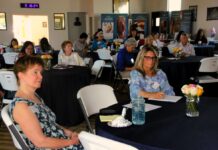PHOTO CAPTION: Fr. John Parks, vicar for evangelization for the Diocese of Phoenix, moderates a panel of millennials at the diocesan V Encuentro / Fifth Encounter Oct. 28 at St. Paul Parish. The panelists addressed concerns of their peers. (Jesus Valencia/CATHOLIC SUN via CMM)
Relationship-building is key to the New Evangelization. Many millennials in the Diocese of Phoenix are feeling a sense of loneliness or finding meaningful relationships, and do not feel welcomed by the Church, according to data collected from a survey presented at the diocesan V Encuentro / Fifth Encounter.
The online survey sought to collect responses from 16-30-year-olds living in the diocese. The four main themes to develop from the survey were a desire for clarity on Church teaching, a sense of welcoming, the value of the Church in their lives and “Kerygma” or how they encounter Jesus Christ in their daily lives.
The Encuentro is a national initiative with the first being held in 1972 and the most recent one being held in 2000. Each time it was meant to discern how to serve the Hispanic and Latino population in the United States. Today, however, many Hispanics and Latinos are no longer Spanish-only speakers, and they make up the majority of Catholics in the United States.
“As soon as [the bishops] gathered, the first thing they discovered is we can’t do this like the previous ones because the Church in the United States is a lot different now than it was in the year 2000 and certainly than it was in 1972 and the American culture, the media the way that we communicate has changed greatly in these last years,” said Bishop Thomas J. Olmsted during opening remarks at the Oct. 28 diocesan event held at St. Paul Parish.
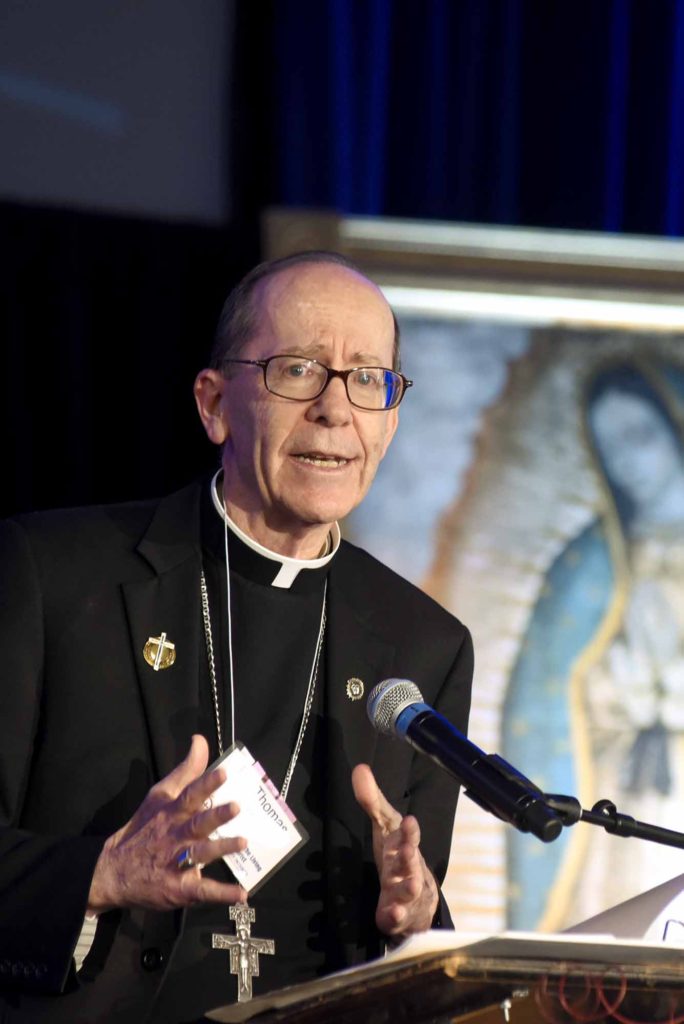
“One of the big changes is that in the first four encounters the primary focus was on the Church in how we should reach out to all the Latinos/Hispanics in our country to engage them in the Church. But in 2017 the largest group in the Catholic Church in America is Hispanics and Latinos,” he said. “So, the question is not how we reach out to Hispanics, but how all of us especially the majority of us who are Hispanic, how God wants to engage us and make us witnesses to the kingdom of God that he’s building here in our midst.”
In the Diocese of Phoenix, the focus of the V Encuentro / Fifth Encounter is on reaching out to millennials between the ages of 16 and 30. The process began over the summer when parishes were asked to discern how to serve millennials and strengthen them to become missionary disciples. The diocesan gathering was a culmination of all of the parish Encuentros. The diocese will be hosting the Region XIII Encuentro in February of next year and the national Encuentro will take place in Grapevine, Texas, next September.
“The diocesan Encuentro has been like an invitation from the Lord to engage our millennials in the life and mission of the Church,” Bishop Olmsted told The Catholic Sun. “Through prayer, online research and listening, we are learning more about the first generation in history to have grown up with iPads and iPhones as a daily part of life.
“These i-instruments are impacting all of us, but our youth do not know — and perhaps could not imagine — a world without them. We still have much more to learn about both the positive and negative impacts of this technology,” he added. “Above all, what is its impact on relationships within the family, among friends and within the Church? How can we make good use of it to hand on the Good News of the living Jesus Christ and how do we counteract new technology’s negative influence? I pray that the Encuentro will assist all of us but especially our millennials to accept the Gospel for the first time or be renewed in our faith.”
EN ESPAÑOL: Encontrando al Cristo viviente — Los mileniales buscan relaciones significativas, sensación de bienvenida
 Sharing a voice with the Church
Sharing a voice with the Church
According to the survey, the top issues concerning millennials are: establishing identity, financial debt, loneliness, finding a purpose in life, finding meaningful relationships, self-esteem and social media.
“I know my peers do this sometimes, even in my Newman Center.If someone’s having a bad day or feeling down rather than spending time with other people I know it’s way easier today to go recluse themselves in a room somewhere and find YouTube, Netflix, something and just sit and isolate themselves for the day and try and escape from that,” said Thomas James during a panel discussion made up of millennials. “It’s something I like to discourage among my friends because you can spend time with other people … in faith and have that same kind of happiness, but that’s something that’s really easy to get into and isolate yourself.”
James is a member of the Holy Spirit Newman Center at Grand Canyon University.
74%
Said their Catholic Faith is important to them.
56%
Feel that their presence in the Church matters, and yet, …
35%
Said that they were not sure their voices were heard.
50%
Said that they encounter Jesus on a regular basis.
27%
Were not sure if they encounter Jesus on a regular basis.
When asked if their Catholic faith was important to them, 74 percent said it was. When asked if they felt their presence in the Church mattered, that number dropped to 56 percent, and dropped 35 percent when asked if they felt their voice is heard in the Church.
“I think it’s easier to feel like your presence matters because you can obviously see if a church is full or not and you know there would be one less person in the physical church at Mass if you weren’t there, but it’s almost harder to see if your voice is being heard. I think that’s also a big, big problem,” said panelist Teresa Medrano, a sophomore attending Arizona State University and the University of Mary – Tempe.
When asked why they left the Church, survey respondents cited a lack of commitment, feelings of being judged, unwelcomed or unaccepted, disagreement with or ignorance and confusion of Church teaching. When asked what the most challenging issue of the day facing their peers, all of the panelists cited the Church’s teaching on gay marriage.
“Abortion I think is a little easier [to combat] because it’s getting down to when you believe life starts and that can be something that you can easily combat with facts and truth,” said panelist Sydney Nache, a member of the Northern Arizona University Newman Center, “but I think when it gets to gay marriage that that’s a little harder because it’s, ‘How can I feel this way when it’s wrong? Why would God put that in me if it’s wrong?’ That’s something that I still don’t understand … and I don’t have the proper arguments for, so I can understand how that would come up with others who have not as strong a relationship with Christ or a foundation in the Church.”
Survey respondents were asked to rank what topics they believed the Church was most concerned with, versus what they felt the Church should be concerned with. Overall, they ranked the Church’s concerns with abortion as first, followed by poverty, evangelization and education. When ranking what they felt the Church should be concerned with, they selected the same topics, but ranked them differently, with poverty first, followed by education, evangelization and abortion.
“I remember back in eighth grade I had so many questions about the faith and had a lot of doubts. I went to a Steubenville retreat and shortly after I found out about ‘Catholic Answers’ and I remember just gobbling up everything I was hearing,” said panelist Monserrat Garcia-Porras, a freshman at ASU and U-Mary – Tempe. “I had no idea there were so many good answers to all the questions I’ve been having and I just didn’t know about the resources. I wish people knew that there are answers to so many questions and that no question is off limits.”
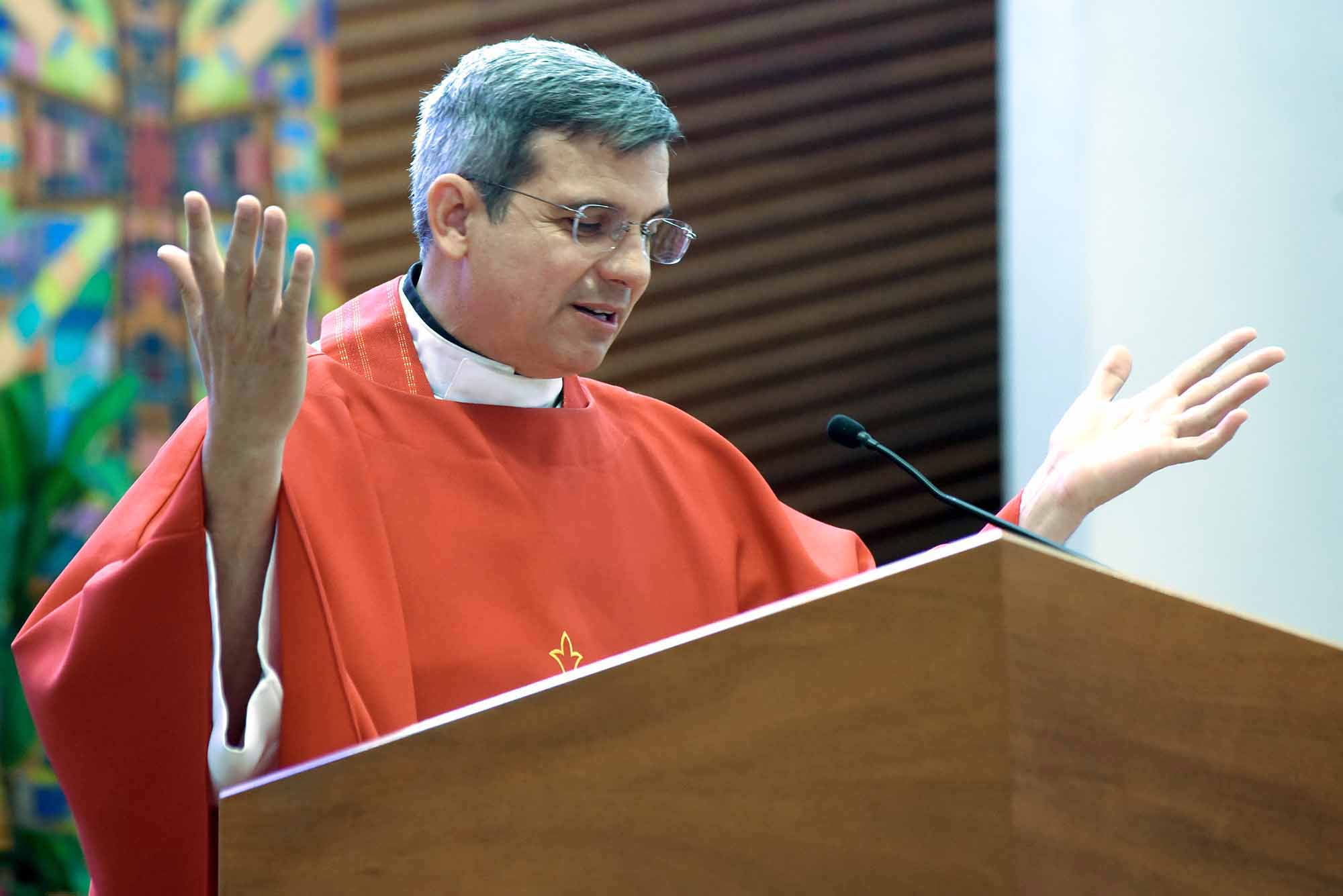
Forming missionary disciples
The diocesan Encuentro was held, not coincidentally, on the feast of Ss. Simon and Jude, which is a diocesan feast day. In a Mass celebrated that day, Fr. Eduardo Montemayor, SOLT, a priest-in-residence at Most Holy Trinity Parish, reflected on Jesus’ call to missionary discipleship.
The first thing Jesus did before calling His disciples, Fr. Montemayor said, was to pray. “So, if you want to be a disciple, the first thing to focus on is having a living relationship with God.” After praying, Jesus went into action by calling His disciples. “A disciple first receives from the Lord; and a missionary then shares what they’ve received. If you want to witness God’s love as a missionary, you first have to receive God’s love as a disciple.”
Reflecting on the saints of the day, Fr. Montemayor said theirs was a “graced friendship,” and they were united by the Holy Spirit. “The V Encuentro wants to unite us. Don’t permit the world to place you into a category that divides us.”
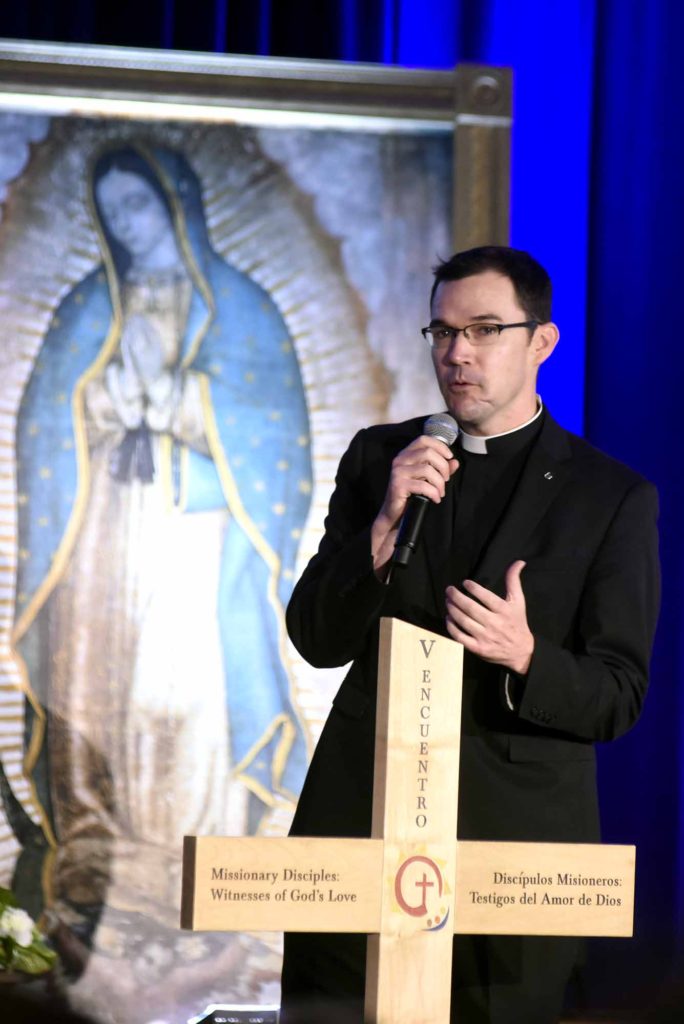
In a presentation on missionary discipleship, Fr. John Parks, diocesan vicar for evangelization, posed a hypothetical of winning the lottery and not sharing the excitement, saying that’s how we treat our relationship with Jesus. Saying that St. Francis’ oft-attributed quote of preaching the Gospel but only using words when necessary is often misconstrued.
“We don’t preach the Gospel because we’re afraid,” said Fr. Parks. “Jesus has died for sins you haven’t committed yet — that’s how great His love is. I’m here to tell you what God has done for you. He’s risen to new life and offered His forgiveness.”
Fr. Parks offered three practices to sharing the faith: know the story of Scripture, know our own story and share it.
“Tell the story of your life, but Jesus is the hero. How has Jesus changed my life?”
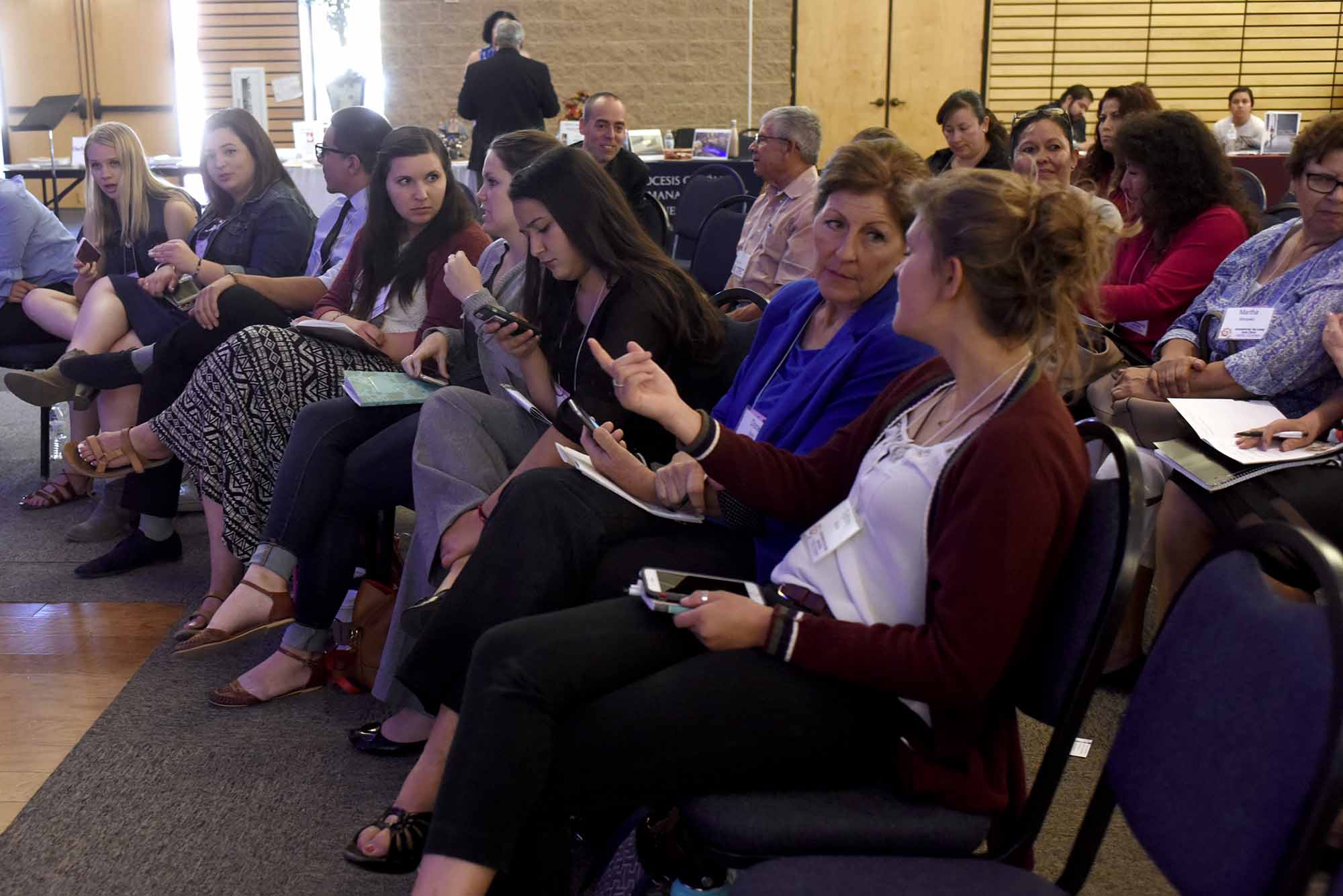
Moving forward
After the diocesan Encuentro, Bishop Olmsted met with key diocesan leaders to discern what the next steps would be.
“We took a deeper dive into the data,” said Dr. Maria Chavira, diocesan chancellor and episcopal delegate for the V Encuentro / Fifth Encounter. “As a result of that there was a lot of brainstorming on the four themes.” Out of the four themes, Chavira said, they delved deeper into the sense of welcoming and kerygma. She said there may be smaller focus groups to help interpret some of the data. “This is not going to be something that happens overnight. This is a process.”
Two things Chavira noticed was that she expected there to be a difference in the rate of men and women who left the Church, but they were the same, and she expected Hispanic millennials would feel less welcome in the Church than Anglos but found the opposite to be true.
“What this difference could suggest is a cultural difference in how Hispanics are experiencing their faith — but that’s something we need explore further.” As the data continues to be interpreted the bishop could issue a pastoral plan to address the concerns that have been brought up.
Chavira said the most important thing is to build our relationship with God and to share that relationship with others.
“The Church is here to evangelize, but we’re not going to be able to do that if we ourselves as Church leaders or as people who are working in the public sector do not have an understanding of what that relationship with God is first,” she said.
“People aren’t going to come to God because you’re giving them all of the rules found in the Catechism first — they’re going to come to God because you met with them for coffee and you shared your story and you inspired them and they’re wondering what’s different about you? … Sharing your story about how your relationship with Christ makes a difference in your life is essential. That comes in relationship.”



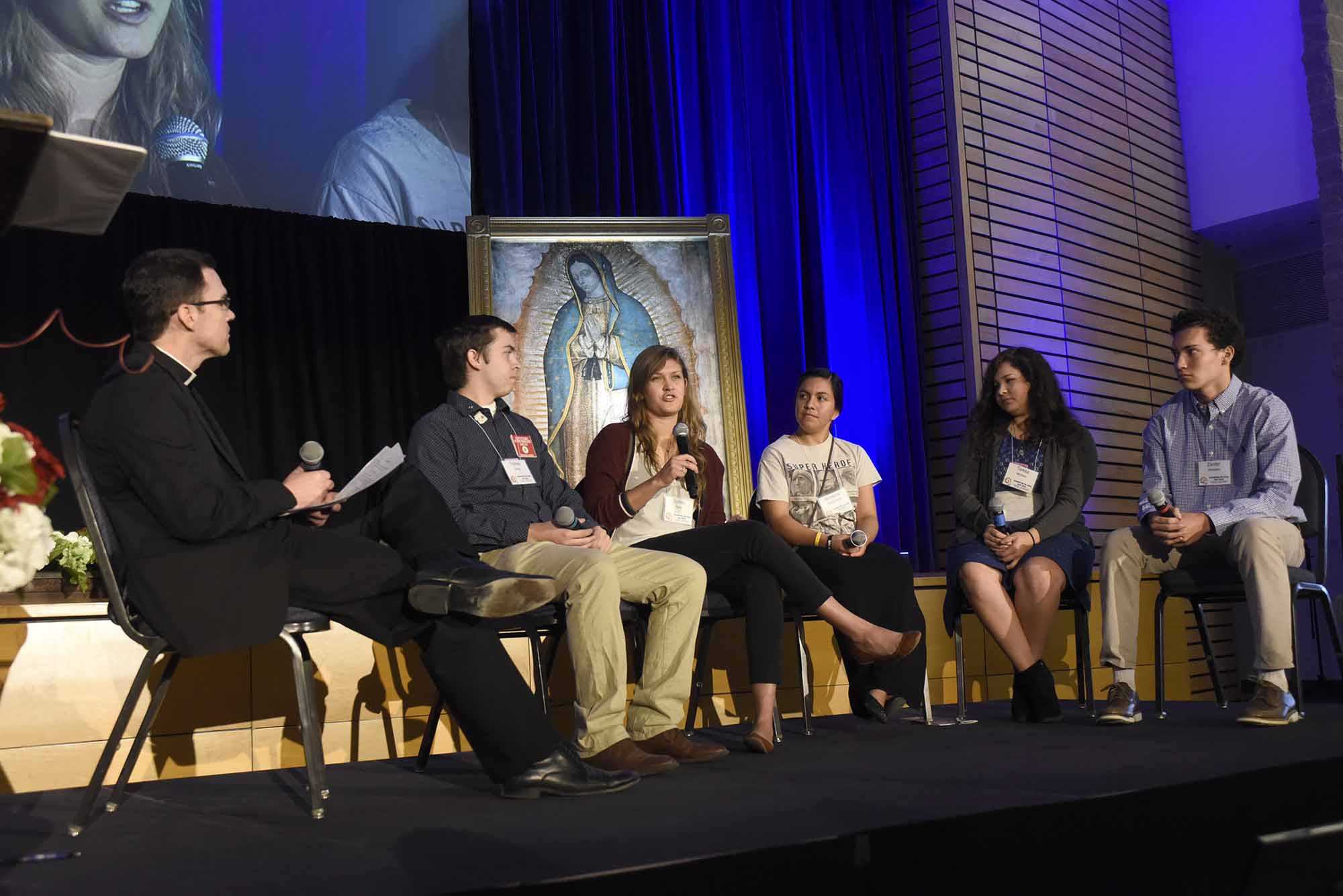
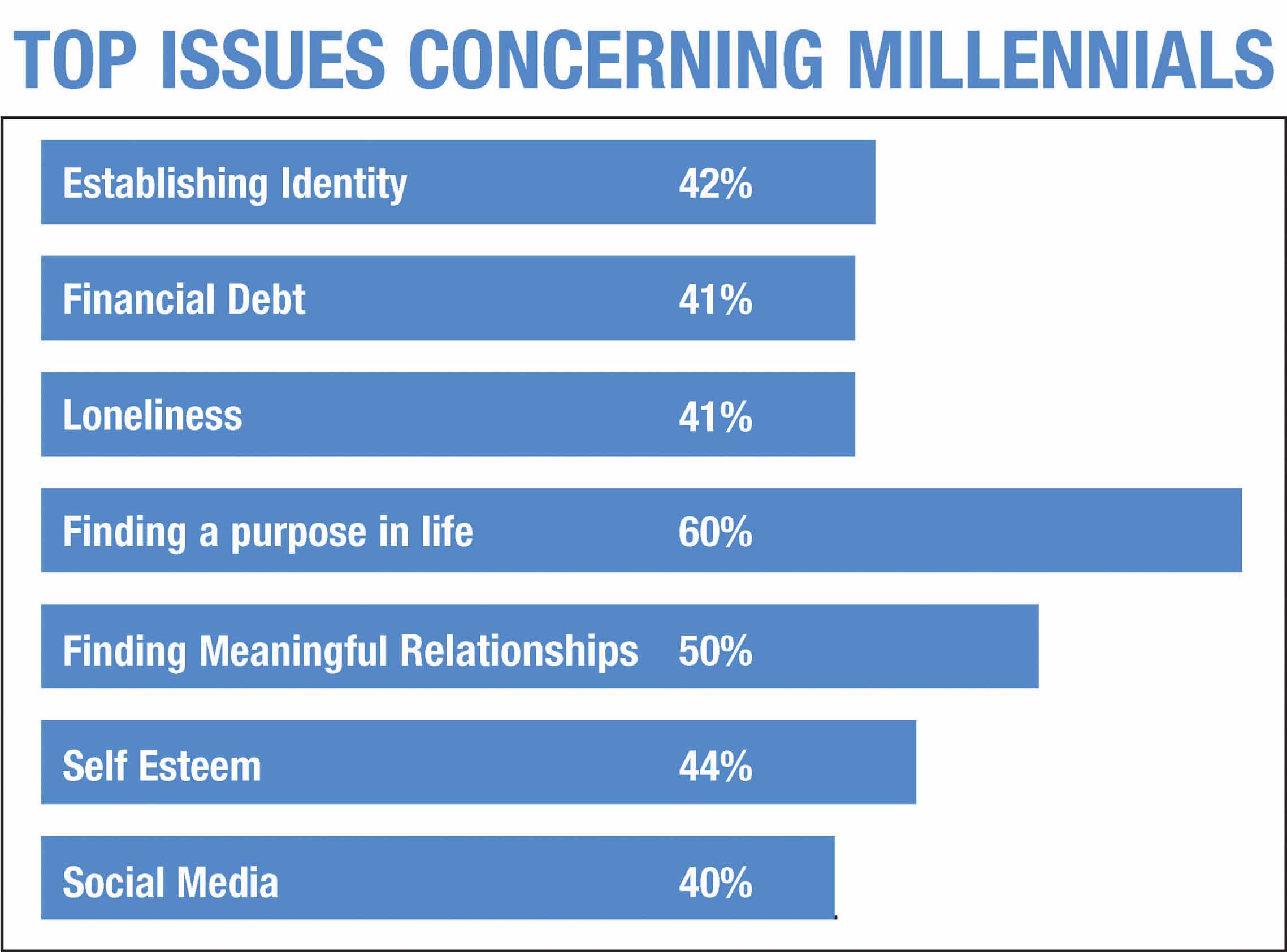 Sharing a voice with the Church
Sharing a voice with the Church